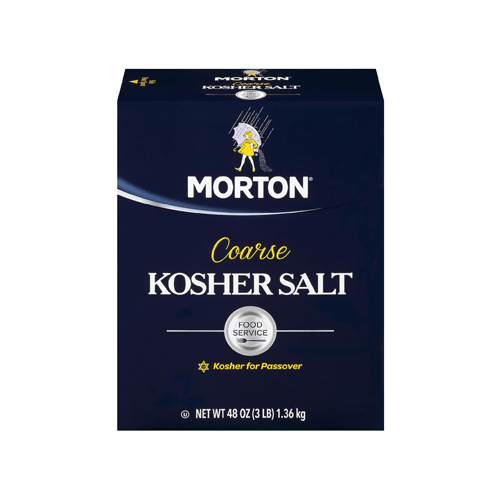Is Swai Kosher? A Deep Dive Into The Kosher Status Of Swai Fish
So, you're probably wondering, "Is swai kosher?" Well, buckle up, because we're about to dive into the nitty-gritty of this seafood controversy. Swai fish has been making waves in the culinary world, but when it comes to religious dietary laws, things get a bit murky. If you're a fan of swai and you follow kosher guidelines, you're gonna want to stick around for this one. We're breaking it all down for you.
Now, before we get into the thick of things, let's talk about why this matters. Kosher dietary laws are more than just a set of rules; they're a way of life for many people. Understanding whether swai is kosher isn't just about checking off a box—it's about ensuring that the food you eat aligns with your beliefs. So, let's clear up the confusion once and for all.
As we explore this topic, we'll cover everything from the basics of kosher certification to the specifics of swai fish. Whether you're a long-time follower of kosher guidelines or just curious about the topic, you're in the right place. Let's get started!
Read also:Unveiling The Truth The Real Cause Of Bob Beckels Death
What Does Kosher Mean Anyway?
Before we dive into the swai debate, let's take a step back and talk about what kosher actually means. Kosher is a Hebrew word that translates to "fit" or "proper." In the context of food, it refers to foods that meet the dietary standards set out in Jewish law. These laws are outlined in the Torah and have been interpreted and expanded upon by rabbis over the centuries.
Kosher laws cover everything from how animals are raised and slaughtered to which foods can be eaten together. For seafood lovers, the rules are pretty straightforward: only fish with fins and scales are considered kosher. This is where things start to get interesting when it comes to swai.
Swai Fish: The Basics
Swai fish, also known as iridescent shark or sutchi catfish, is a type of freshwater fish native to Southeast Asia. It's become increasingly popular in recent years due to its affordability and mild flavor. But here's the kicker: swai doesn't have scales. And without scales, it can't meet the basic criteria for being considered kosher.
Now, some people might argue that swai has tiny, almost imperceptible scales, but according to kosher standards, these don't count. For a fish to be kosher, its scales must be visible and removable without damaging the fish's skin. So, where does that leave swai? Let's break it down further.
Why Swai Isn't Considered Kosher
Here's the deal: swai fish doesn't meet the kosher requirement of having visible and removable scales. According to Jewish dietary laws, a fish must have both fins and scales to be considered kosher. While swai does have fins, its scales are either absent or so small that they don't meet the criteria.
- Swai lacks visible scales.
- The scales it does have are not easily removable.
- Kosher laws require both fins and scales.
So, if you're following a kosher diet, swai is off the menu. But don't worry, there are plenty of other fish options that do meet kosher standards, like salmon, tuna, and tilapia.
Read also:Who Is Lela Sohan Erome The Ultimate Guide To Understanding Her Impact
What About Other Types of Catfish?
If swai isn't kosher, what about other types of catfish? Well, it depends on the specific species. Some catfish, like channel catfish, do have scales and are considered kosher. However, others, like swai and basa, do not. It's important to do your research and consult with a rabbi or kosher certifying agency if you're unsure about a particular type of fish.
Here's a quick breakdown:
- Channel catfish: Kosher (has scales)
- Swai: Not kosher (lacks visible scales)
- Basa: Not kosher (lacks visible scales)
How to Tell if a Fish is Kosher
So, how can you tell if a fish is kosher? It's actually pretty simple:
- Look for fins and scales.
- Check if the scales are visible and removable without damaging the fish's skin.
- Consult a kosher certification label or a rabbi if you're unsure.
If a fish meets these criteria, it's good to go for those following a kosher diet. But remember, just because a fish is kosher doesn't mean it's automatically healthy or sustainable. Always check the source and consider the environmental impact of your seafood choices.
Common Misconceptions About Swai
There are a few common misconceptions about swai fish that we need to clear up:
- Swai is a type of shark: While swai is sometimes called "iridescent shark," it's not actually a shark. It's a type of catfish.
- Swai is kosher: As we've discussed, swai doesn't meet the kosher criteria of having visible and removable scales.
- Swai is always unhealthy: While swai can be high in fat, it's not inherently unhealthy. It's all about how you prepare it.
Now that we've busted these myths, let's move on to some practical advice for those who want to stick to a kosher diet.
Tips for Following a Kosher Diet
Whether you're new to kosher eating or a long-time follower, here are some tips to help you navigate the world of kosher seafood:
- Always check for kosher certification labels on food packaging.
- Consult with a rabbi or kosher certifying agency if you're unsure about a particular food.
- Stick to fish with fins and scales, like salmon, tuna, and tilapia.
- Be mindful of how your food is prepared to ensure it remains kosher.
By following these guidelines, you can enjoy a wide variety of delicious and kosher-compliant seafood options.
Kosher Certification: What to Look For
Kosher certification labels are your best friend when it comes to ensuring that the food you're eating meets kosher standards. These labels are issued by reputable kosher certifying agencies and indicate that a food product has been inspected and approved as kosher.
Some well-known kosher certification agencies include:
- The Orthodox Union (OU)
- The Star-K
- The OK Kosher Certification
When shopping for seafood, look for these labels on the packaging to ensure that the fish you're buying is kosher.
The Environmental Impact of Swai
While we're on the topic of swai, it's worth mentioning its environmental impact. Swai is often farmed in overcrowded and unsanitary conditions, which can lead to health and environmental concerns. If you're looking for a more sustainable seafood option, consider choosing wild-caught or responsibly farmed fish.
Here are some eco-friendly seafood options to consider:
- Wild-caught Alaskan salmon
- US-farmed channel catfish
- Certified sustainable tilapia
By making informed choices, you can enjoy delicious seafood while also doing your part for the planet.
Conclusion: Is Swai Kosher?
So, to answer the burning question: no, swai is not kosher. While it's a popular and affordable fish, it doesn't meet the kosher requirement of having visible and removable scales. If you're following a kosher diet, it's best to stick to fish that meet these criteria, like salmon, tuna, and tilapia.
But don't let this discourage you from enjoying delicious seafood. There are plenty of kosher-compliant options out there, and with a little research, you can find the perfect fish to suit your taste and dietary needs.
So, what's next? If you found this article helpful, feel free to share it with your friends and family. And if you have any questions or comments, drop them below—I'd love to hear from you!
Table of Contents
- What Does Kosher Mean Anyway?
- Swai Fish: The Basics
- Why Swai Isn't Considered Kosher
- What About Other Types of Catfish?
- How to Tell if a Fish is Kosher
- Common Misconceptions About Swai
- Tips for Following a Kosher Diet
- Kosher Certification: What to Look For
- The Environmental Impact of Swai
- Conclusion: Is Swai Kosher?


